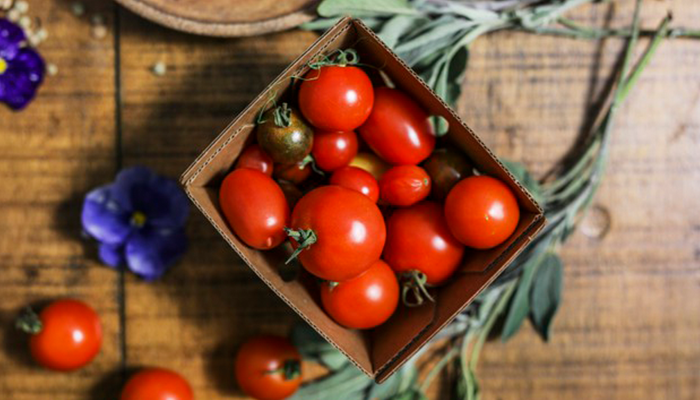Table of Contents
Eating or munching is a natural response to feeling low or depressed to cope with stress or feel better. Sadly, the foods we end up consuming have counterproductive results in the long run. Chocolates, ice-creams, packaged goodies, coffee, etc. that we eat when we’re feeling depressed make it worse when their immediate “kick” weans off. A diet for depression and anxiety should exclude saturated fat, refined sugars, processed ingredients, and caffeine.
Eating foods that help with depression and exercising are the best ways to manage the symptoms of depression and anxiety. Additionally, getting enough sleep can solve many mood-related issues. Studies have proved that gluten, dairy, caffeine, and sugar cause inflammation and thus affect mood. Avoiding them makes you emotionally resilient and less likely to be affected by stress or anxiety. The mental benefits of healthy foods cannot be ignored and small dietary changes can take you a long way on your quest for happiness. Get the expert advice of certified nutritionists with FITFEAST. Add anti-depression foods to your diet with personalized attention.
7 Foods Good for Depression

Dark leafy greens are the healthiest foods because they are the most nutrient-dense options out there. A diet for depression and anxiety must be replete with spinach, kale, and Swiss chard along with berries, seeds, mushrooms, onions, etc. These foods are great for boosting the immune system and have cancer-preventing properties. They prevent the transformation of normal cells into cancerous cells and also help fight any precancerous and cancerous cells that may arise. Leafy green vegetables fight inflammation, especially in the brain, which is one of the leading causes of depression. They are packed with Vitamins A, C, E, and K, minerals, and phytochemicals.

Most nuts including cashews, hazelnuts, and brazil nuts are packed with omega-3 fats. However, walnuts leave every nut behind in this category. Since they are one of the highest plant-based sources of omega-3 as well as protein, they improve brain health in addition to maintaining blood sugar levels. Eating walnuts every day is associated with lower scores of depression. People who consume nuts, especially walnuts, regularly are usually more optimistic, high on energy, have more hope and concentration, and show greater interest in activities.

This red fruit (yes, tomato is actually a fruit) is rich in folic acid and alpha-lipoic acid both of which are natural antidepressants. As it turns out, a lot of patients with depression have folate deficiencies, according to studies. Therefore, eating six baby tomatoes or a couple of big ones every day can be good for your mental health. Folic acid prevents the excess production of a compound – homocysteine – that restricts the production of serotonin, dopamine, and norepinephrine – neurotransmitters that keep you happy. Alpha-lipoic acid, on the other hand, converts glucose into energy and therefore improves your mood.

Chia seeds and flaxseed are the best foods for depression and other related problems. These seeds among others are good sources of omega-3 fats. In fact, a spoonful of both these seeds can satiate your body’s daily omega-3 fats needs. Replace your packaged snacks with seeds and nuts and you will notice a recognizable difference in your mood.
For that matter, you should have pumpkin and squash seeds as well, as they increase an essential amino acid – tryptophan – in the body that creates serotonin. Turkey is a great alternative if you are non-vegetarian. Otherwise, these seeds can also fulfill your daily needs. Seeds also contain disease-fighting substances and increase the absorption of other nutrients in vegetables that protect the body against diseases.

Gut health plays a major role when it comes to mental health. Probiotics as well as other microorganisms living in your gut reduce inflammation, regulate mood, and produce feel-good neurotransmitters. The best diet for depression ought to contain probiotics as they improve your stress response.
It is a commonly known fact that people with irritable bowel syndrome develop depression and anxiety. They are suggested to include probiotics in their diet like yogurt, tofu, tempeh, miso, kimchi, kombucha, etc.

Apples are on the list of foods that fight depression. An apple a day can also keep a psychiatrist away if you have it daily along with the other foods mentioned in this list. They are packed with antioxidants that reduce inflammation and repair damage caused due to oxidation on the cellular level. They are also rich in soluble fiber that maintains blood sugar swings.

Beans are foods good for depression because they help maintain blood sugar levels. They contain protein and fiber that helps in maintaining a stable mood. They are good sources of folate, which is a B vitamin that increases the production of blood cells, DNA, and RNA in addition to metabolizing proteins. Chickpeas are also high in folate; having half a cup can satisfy your daily folate needs. Pinto beans are the second-best choice.


